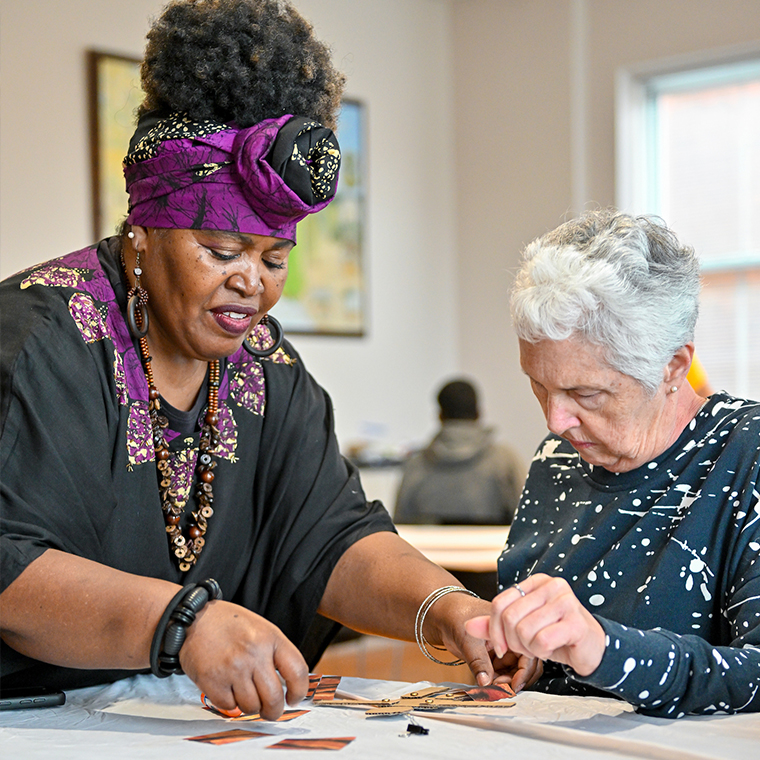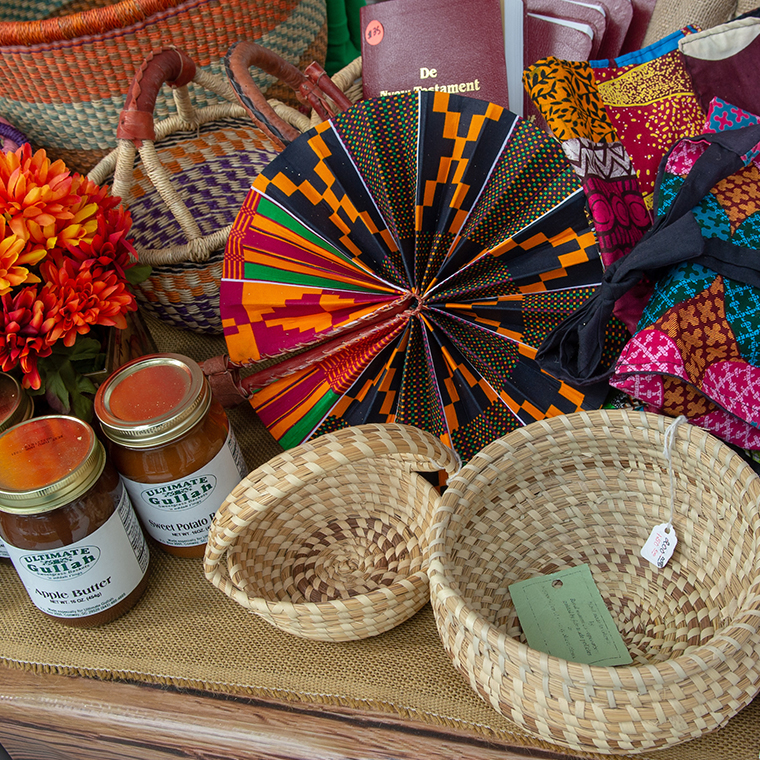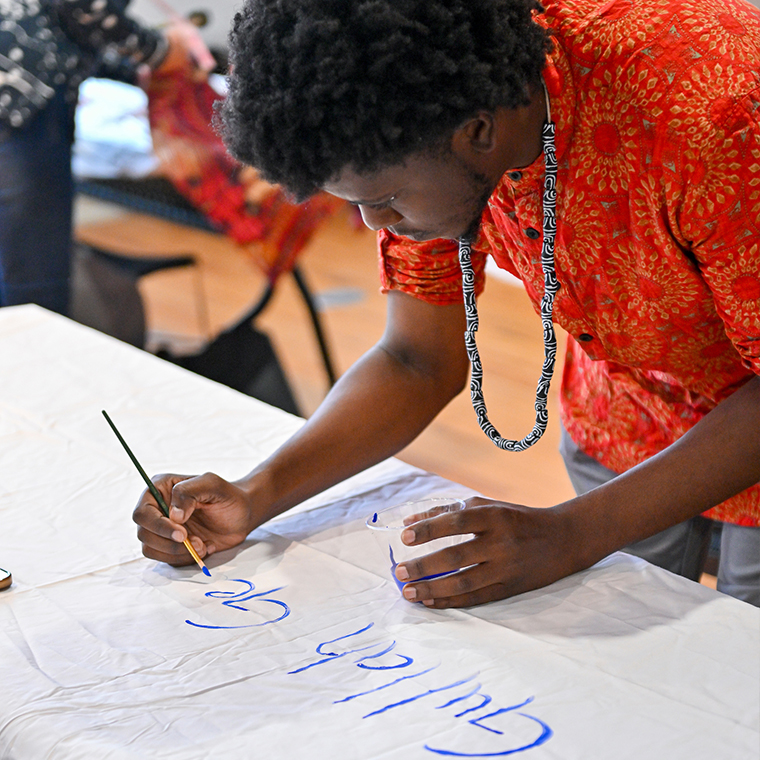CCU’s International Gullah Geechee Conference to focus on oral language traditions and cultural communication
The conference will focus on oral Gullah Geechee language traditions as well as cultural communication through the languages of music, art, fashion, and resistance. The event includes three days of activities, exhibits, performances, and workshops in three different locations: CCU’s campus, Atlantic Beach, and downtown Conway. Events on Thursday and Friday require registration, and Saturday’s events are free and open to the public. See full schedule here.
“My goal is that this conference helps people understand the importance of creole languages and how they connect us back to our beginnings,” said Zenobia Harper, director of the Joyner Institute and co-chair of the IGGAD 20204 Conference committee.
The conference begins Thursday, Feb. 22, in Atlantic Beach. Daytime programming includes workshops, tours, and film screenings at the Atlantic Beach Community Center. That evening, Veronica Gerald, Joyner Institute founding director and CCU Distinguished Professor Emeritus of English, will deliver the conference keynote address in at 5 p.m. in CCU’s E. Craig Wall Sr. College of Business Administration Building, Johnson Auditorium.
On Friday, Feb. 23, the conference continues on CCU’s campus with lectures and presentations by scholars and practitioners from around the country. Gullah Geechee Community Day takes place from 10 a.m. to 5 p.m. on Saturday, Feb. 24, at locations around Conway, with a wide range of presentations, cultural arts performances, and artist exhibitions.
Featured speakers include musicologist Eric Crawford, director of the Benedict College Honors Program and former director of CCU’s Joyner Institute, who will present “The Gullah Geechee Black Seminole Song Tradition.” Regina Ciphrah, scholar and CEO of Verbalizing Visions, will deliver “Empowering Voices: Co-Creating the Future of Culturally Sustaining STEM.”
“Gullah Geechee people were trafficked to this area primarily because of rice growing and cultivation,” said Harper. “There is a technology to that, that was brought with them. They brought with them the language of engineering and mathematics. Because of the way the caste in this country was set up, they were separated from those things. So now, as a young Black child, you might not realize that in your ancestors and your DNA is the language of STEM technology. Your ancestors were engineers and builders and architects and surveyors and inventors and problem solvers and critical thinkers. So, to connect that in the classroom is important: letting young people know this is not something new that we’re teaching you. It’s something that is embedded in your DNA code.”
Performances on Saturday that celebrate cultural heritage include the Gullah Geechee Ring Shouters onstage alongside Hispanic performers dancing the Bomba. Harper noted the direct connection between the two styles.
“Both of those dances have West African roots and are rooted in the experiences of enslaved African peoples,” said Harper. “The Bomba, with all its restrictions, represents that place in Puerto Rico where the drums were not completely outlawed [as they were in South Carolina after the Stono Rebellion]. The drums are language, the drums create language, you speak a language with the drums. And with this particular ring shout, you can see the evidence of what happened when the drums were totally outlawed in plantations along the South Carolina waterways. In that performance you’ll be able to visualize the connections we have as part of the African Diaspora that you might not realize. The Diaspora has a mapping that we can trace.”
Another performance is the reading of excerpts from a commissioned play titled The Black Pearl, by Cynthia Grace Robinson and directed by Cezar Williams. The work was created as a result of a CCU theatre student appealing to Department of Theatre chair Steven Higginbotham that students should study and perform more works by women of color.
“The Edwards College needs to be commended for him listening to this voice,” said Harper. “And because he listened to this voice, this play was created, and it could serve to be a way to help Atlantic Beach and all of us creative positive vibes and buzz about Atlantic Beach.”
For more information, contact Harper at 843-349-5003 or zharper@coastal.edu.





